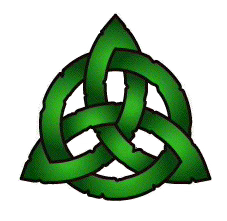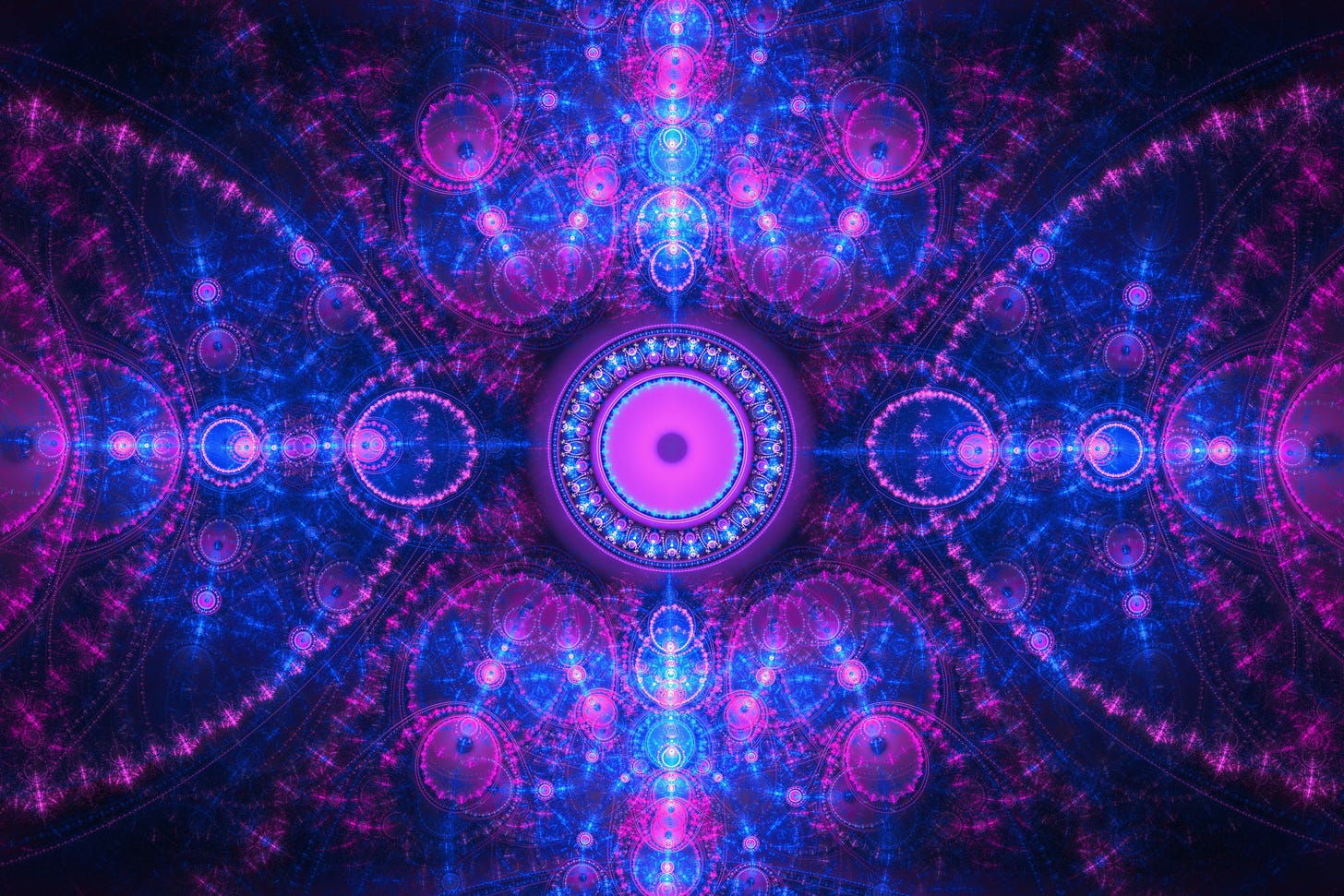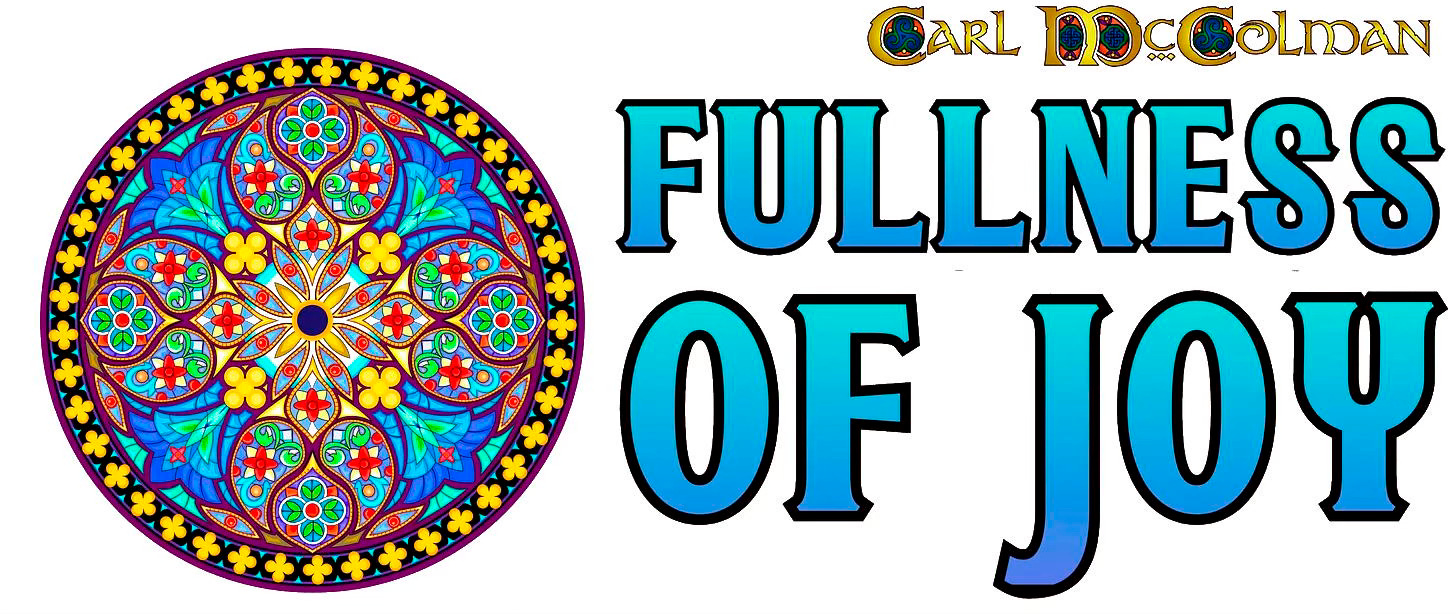Is Christian Mysticism Dualistic?
Nonduality and Theism in Western Contemplative Practice
Trigger warning: this post gets rather heady in a hurry. If that’s not your cup of tea, check out my other Substack, Mystical Journey, which is written more from a heart-space.
Two Questions That Dive Into the Philosophy of Mysticism…
A while back I received this email (edited slightly for clarity) form a reader named Randy:
In Chapter 7 of your New Big Book on Christian Mysticism, you stated that Christian Mysticism differs from other mystical traditions because in Christian Mysticism, there is always a separation or distinction between God and man. I was wondering if you could point me to any historical or literary references that support your interpretation. At their core, ALL other mystical traditions ultimately describe "non-duality", i.e. that God and the Universe (including mankind) are all the same thing, such that the apparent distinction between "God" and "not-God" *is* the grand illusion. The Christian notion of this non-duality is supported by many statements made by Jesus, including "the Kingdom of Heaven is within you," as well as "I and the father are one." So given the fact that Jesus's own words suggest that Christian Mysticism is a non-dual teaching—that there is NO ultimate difference between God and man—I am wondering how you came to believe otherwise? The distinction you made in your book (that Christian Mysticism is based in dualism rather than non-dualism) read like you dropped an atomic bomb of information, yet it came with no explanation and no references. Can you please help me understand how you came to your belief that does not seem to be consistent with any other Christian mystics? I am very intrigued. Thank you.
Meanwhile, another reader named Buck wrote the following:
Carl, I want to hear your thoughts on nonduality. I am reading several books on the subject and would just like to hear what you think.
I know there are all kinds of nonduality but the one I hear most about is Advaita. Even Marshall Davis in his Christian Nonduality adopts this understanding. Roughly speaking, Nonduality means that there is One and nothing else. All the manifestations are illusions and there is really no one or thing. We are all being lived by the One and when we die we no longer exist. Eastern terms like emptiness and nothingness are used when speaking of the One. Even Bernadette Robert's "No Self" rubs up against the Eastern no self. About the same thing happens with the term “Oneness".
So when Christians speak on Oneness and Nonduality, are they speaking of the same nonduality of Radical Advaitic Nonduality, where there is only Ultimate Reality and nothing else--only illusions that are not permanent. Nothing seems to matter and everything is just as it is, and we all cease to exist when we take our last breath.an impersonal and not caring Reality replace a loving personal God.
It just seems that more and more Christian nondualism is moving into the Eastern nondualism and seems to be rather vague on the whole subject of nonduality.
Also, I hope you will address the existence of self after death. I realize it is all speculation but nonduality tends to offer no afterlife.
How do I respond to these wonderful emails without just writing another book? Writing about nonduality is perhaps the trickiest aspect of contemplative writing. To begin with, any effort to describe nondual experience and reality immediately gets caught up in the trap of language, which is inherently dualistic. It’s like trying to use a photograph of Kīlauea to experience a volcano.
Critics and historians of mysticism who are a lot more erudite and informed than I am have taken to task even great nondual thinkers (like Shankara) for unwittingly reinforcing the very dualisms that they claim to be transcending or escaping (see, for example, Gregory Shaw’s fascinating book on Iamblichus, Hellenic Tantra, especially chapter III, Kindle location 871ff). All this to say, I feel like I need to begin this essay by acknowledging that writing about nonduality is very much a fool’s errand. But fools rush in where angels fear to tread, right? And I’ve humbly acknowledged my own foolishness for quite some time now.
Plus, I have said that I want this Substack to be a place where we can explore any topic whatsoever through a contemplative lens. So… here goes nothing!
Parsing out the Nonduality between the Unitive and the Duality…
First of all, I would submit that many Christian writers are vague when it comes to writing about nonduality precisely because this is an "imported" topic and implies an entire world view and way of talking about Spirit and spiritual/mystical experience that relies on a language — a discourse — that is not "native" to Christian soil.
Think of how difficult it is to navigate visiting a foreign county — even when you speak the same language like when Americans visit England or Ireland — because there are so many differences big and small (different traffic laws, different money, different social customs, different shopping and dining establishments, subtle differences even when the language is the same, and so forth). We call this "culture shock" and for most people it's very minor, almost a charming feature of international travel — far less bothersome than jet lag (!), although it is an irritant, which leads to so many people having that "It's good to be home" feeling when returning from their journey.
So I think there's a bit of "spiritual culture shock" when Christians write about nonduality. Not that it's wrong for us to do so — I believe that nonduality points to a genuine contemplative experience, and, phenomenologist that I am, I trust that it therefore points to a genuine reality. But I think the language/discourse/narrative around nonduality is built on a monistic worldview, a worldview that is predisposed to seeing nonduality as both the ground of being and the goal of mature spirituality.
Like it or loathe it, Christianity is not a monistic world-view; it's a monotheistic world view, with a pretty baked-in idea that the act of creation meant establishing some sort of firewall or faultline between creator and creation. The masterpiece is not the same thing as the artist. Now, we can argue whether monism or monotheism is the more "true" or accurate worldview, but I think that to do so means we’ll be heading into the hall of mirrors that is paradox. Is God one with all things, or separate from/above all things? Put another way: is my true nature an undifferentiated union with God, or an ever-expanding experience of love that presupposes an existential distinction between creator and creature?
The best answer I can come up with is "Yes."
If Christianity as a monotheistic wisdom tradition does not have the philosophical foundation to talk sensibly about nonduality, how do we talk about the radical experience of unity, of non-separation, of oneness between all things and all things with God? Traditionally, we have used language like the unitive life or the beatific vision or perhaps even Union with God to point at, what I believe, is the same "location" where nonduality is directly apprehended.
Some may recoil at this idea, certain that western unitive experience and eastern experience of nonduality must be different experiences, different phenomena. But can we prove that? I don't believe so (In all fairness, there's no proving that they're the same experience either!). But I take this as a reasonable working hypothesis because both nondual experience and unitive experience are profoundly ineffable, that is to say, they cannot be put into words. Indeed, that's perhaps the biggest tell we have that we're poking our noses into the same delicious meal.
Younger Kids Can Learn a Lot From their Older Siblings
Now, concerning Advaita (the tradition of nondual mysticism that emerges from Vedanta in India) — is it the only reasonable context we have for describing nonduality? I'm not an expert on Advaita by any stretch — I only know enough to be dangerous — so please read this as a layperson's rumination and nothing more.
Advaita is a nondual philosophy, from the ground up. So naturally, the discourse of nonduality coming out of the Vedantic tradition is going to be poetically honed and polished beyond anything that most mystical Christians can come up. (For what it's worth, I do think Cynthia Bourgeault, following her mentor Thomas Keating, has done some of the most beautiful and insightful writings on nonduality as part of Christian spirituality: see especially her The Heart of Centering Prayer: Nondual Christianity in. Theory and Practice and her recent, superb, study of Thomas Keating).
The fact that Advaita Vedantists have a beautiful and established language surrounding the experience of nonduality doesn't make it "better" than anything Christians can come up: that would be like comparing a ten-year-old's musical skills to that of a professional violinist; no one would consider it fair to judge the child's performance by the standards of the virtuoso. Remember, mystical Christianity is only about 2000 years old — and its full flowering is less than a millennium old now — which means the Vedantists have at least 1000 years if not more of a head start on us.
So I would gladly acknowledge that contemplative Christians have a lot to learn from Advaita. But we also have a lot to learn from Tibetan Buddhism, and from Zazen, and from some of the Sufi and Kabbalistic masters; maybe not all of the above are going to teach us about nonduality, but they all have something to share (as do we). So I'm not too worried if Christian writers keep returning to Advaita to help them articulate their experience of nonduality.
A Tale of Two Nondualities?
Buck suggests, "It just seems that more and more Christian nondualism is moving into the Eastern nondualism and seems to be rather vague on the whole subject of nonduality." I'd like to push back against this a bit. Who said there is more than one nonduality? There may be more than one way of describing nonduality, or describing how we may experience it, or what implications it has for our daily spiritual lives, etc. etc. But nonduality is simply one.
There is no "eastern" and "western" nonduality, any more than there is an "eastern" and "western" silence. Silence is silence. Sometimes we experience it as soothing, other times oppressive (like the silence between quarreling spouses) and other times toxic (as when people in power refuse to listen to those without power or even to allow them to speak). But those differences are not “out there” — they are in our heads, based on our values, life experiences, social relationships, psychological and physical health, relationship to power and privilege, etc. etc. etc. The silence itself is always simply silence: pure, gentle, present, vast, open, spacious. Like how two frames of different colors can make a painting seem to look entirely different, the stories we tell ourselves about silence (or non-duality) can shape how we perceive the silent mystery — even though the mystery itself is always the same.
So let's try to understand the difference between the thing itself and how we talk about it. The avant-garde musician Laurie Anderson (widow of the late great Lou Reed) has a song where she chants, "This is the time, and this is the record of the time." It’s a song about a plane crash (!) but this line could so beautifully line up with any kind of mystical experience: including the experience of nonduality): for it is one thing to dive into the pure nondual experience/presence/reality, which can never adequately be put into words, and something else entirely to try to talk about, however poorly or eloquently our words might be. We revere mystics like Nagarjuna or Meister Eckhart or Ramana Maharshi or Thomas Keating because they are so eloquent and philosophically nuanced in their articulation of nonduality: but even their words thud with the leaden dualism that weighs down all language, indeed all discursive thought.
We really have got to get over what might be the biggest “con” in all of world mysticism: this idea that eastern mysticism and western mysticism are so radically different. Well, yes, they are radically different, but that’s like saying the Atlantic and the Pacific are two radically different oceans. Water is water, folks. We need a spirit of joyful humble curiosity as we seek to understand what is different (and what is unitive) about the different schools of mysticism from around the world. It’s an adventure, let’s have fun with it.
When I Die, Can I Take My Nonduality With Me?
Finally, just a brief word in response to Buck’s question about what nonduality might have to say to us about death? "Nonduality offers no afterlife" — well, sure, but again, nonduality just is. It doesn't "offer" us anything, any more than silence offers us something. If nonduality is real (and I am quite convinced it is, but again, impossible to describe especially to the western monotheistic mind) then can't we trust that death is simply another emergence in the world where all is one? If a drop of water falls into the ocean, it's drop-ness "dies" but what a pay-off, for now it is truly one with the ocean. I rather think that's what death for us human beings is like. Now some may sniff that this is impersonalist and that I'm suggesting there will be no family reunions in heaven, but I'm not suggesting anything of the sort. No one said that the drop-of-water-become-the-ocean cannot continue to relate with all the other drops-turned-ocean… And even if heaven is impersonalist, so what? It's still heaven.
Okay, I’m feeling like I have barely scratched the surface here, but this post is already clocking in at over 2000 words so I feel like I had better shut up now.
If you want to read more, here are a few posts from my blog in which I explore the question of nonduality as a category of Christian Mysticism (disclaimer: I’m not a philosopher, so these are definitely a layperson’s musings)…
Finally, dear reader, I’d love to get your feedback (Randy and Buck for sure, but indeed anyone reading. this). Paid subscribers can leave comments, but if you’re not a paid subscriber you can always send your thoughts to me directly.
And if you don’t really care about nonduality but have another question about, well, anything that you’d like a contemplative take on… please, let me know. Responding to reader comments and questions is half the fun here.










I think it was Cynthia Bourgeault that said Non-Duality is a mode of perception. I ponder this sometimes. I'm reminded of someone who described to me how left and right brain people look at a painting, or someone who has studied art vs someone who hasn't. Both look at the picture, one will look at the geometry, the genre, the brush stroke style etc. Another will look at it and say "Beautiful Sunset" and that's it. I wonder if it's more how we perceive.
So in this way both duality and non-duality are true.
Hidden away in Christianity is, I believe one of the highest expressions of this Duality/Non-Duality paradox in Jesus Christ, the God Man, who held duality of being man, and the non-duality of being God in divine "tension" during His incarnation. It's like hidden away in Christianity and wrestled with since it's inception is how both duality and non-duality can exist at the same time in the person of Jesus Christ. Amos Smith wrote a good book about this.
Carl, this is such a timely post for me, so first of all, thank you for publishing it.
My question is, can the tension between duality and non-duality be resolved (somewhat) by panentheism and the Christian doctrine of incarnation? God is embodied in all things, yet is transcendent to all things.
I was recently turned on to Advaita by studying Schopenhauer. The difficulty for me with either of those is the notion of idealism. As if God is dreaming all of reality and therefore it’s all an illusion, good or bad. Or, in the latter case, it’s all a blind Will.
I think Christianity answers all that with creation/incarnation, but the insight of unity has been greatly missed by many believers. For me, Christianity gives a better response to the problem of evil than Advaita or Schopenhauer are capable of by simply acknowledging suffering not an illusion.
Certainly, Jesus dispels the illusion of separateness, and much more. My point is, Christianity seems to give more gravity to both goodness and its absence.
Lastly, it may be monism is the case, but more-so neutral monism with the third aspect being Spirit.
Apologies for the lengthy reply. As I said, I’ve been engaging these ideas a lot lately, so your post came at a perfect time. I’m very much a non-specialist and a novice to all these things, so if I’ve said something that needs correcting, please do so. Otherwise, I appreciate your thoughts, if any.
I also posted this on Bluesky, but wasn’t sure if you interact over there, so I posted here too.